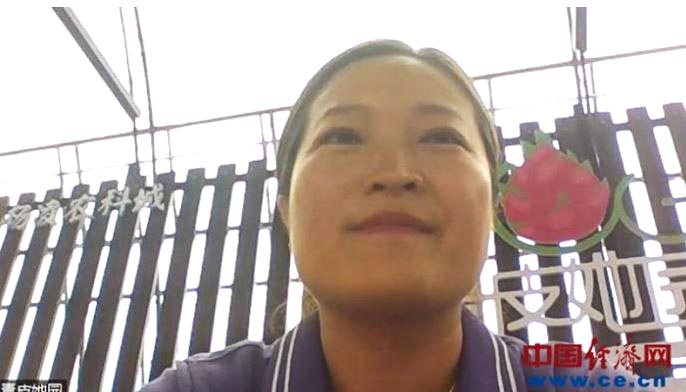BEIJING, June 1 (DNA): ” We must reduce the use of chemical fertilizers so organic farming methods such as fermented farmyard manure and returning straw to the field are worthy of promotion, by which can also effectively cope with the high price and shortage of local fertilizers.
We are very willing to share our experience with the Pakistani friends in this connection ”
This was stated by Wang Yan, General Manager of China’s Yangling Qingpita Garden Dragon fruit Demonstration Base, in an exclusive with China Economic Net (CEN).
He noted that the harvest season for Pakistani mangoes already started. This kind of fruit famed for strong flavor, high sweetness and fine fiber has long been favored by the world market. However, local farmers are worrying about the production reduction caused by various factors.
According to an official of the Ministry of National Food Security and Research, Pakistan last year produced around 1.7 to 1.8 million tons of mango, but this year, he said mango production in the country might face a 30 percent reduction. Some professionals have given even less optimistic forecasts.
“This year, mango production may be confined to 0.9 million tonnes from 1.8 million tonnes last year,” according to All Pakistan Fruit and Vege?table Exporters Asso?ciation (PFVA) Patron in Chief Waheed Ahmed. So, what is the root cause? Pakistan Agriculture Research Council (PARC) Chairman Dr Ghulam Ali indicated that the early arrival of summer and abnormal high temperature did not allow the crop to get the required time for the process of fruiting. Mid-March saw average temperatures between 37-42 degrees.
In contrast, the average temperatures during the previous season were around 34 degrees. Besides, rupee depreciation, rising labor costs along with high tariff of electricity and gas have significantly multiplied the cost of processing mangoes. Given this, exporters have been forced to slash the export target by 25,000 tonnes to 125,000 tonnes for the current season. Facing plight of Pakistani mangoes, Chinese and Pakistani experts are trying to find opportunities for cooperation to change the status quo.
In the Yangling Agricultural Hi-tech Industries Demonstration Zone in Shaanxi Province, which is located in the temperate zone with little water in northwestern China, mangoes, as a kind of tropical and subtropical fruit, have been harvested for three consecutive years. “Among our three best varieties, a variety with smaller fruit has a yield of about 1.3 tons per mu (0.067 hectare), and the other two varieties with larger fruit has the yield between 1.5-2 tons per mu. In addition, they all have a strong resistance to disease and cold,” said Wang Yan. “With our advanced facility agriculture, I believe that if there is an opportunity for cooperation, we will be able to systematically improve the reduction of mango production in Pakistan due to extreme weather.”
Wang Yan told CEN that once the water and fertilizer integrated greenhouse is built, the service life is generally more than 15 years, with high economic benefits.
“With global warming, extreme weather is likely to occur more frequently in the future, a long-term stable growth environment can fundamentally minimize the damage caused by natural disasters.
In addition, application of organic fertilizers to increase soil organic matter is also a top priority because extreme weather can also cause serious damage to the topsoil. If we can work together with Iron Brother, we will start with the greenhouse and soil, and achieve a two-pronged approach.
Considering the relative high cost of integrated greenhouse, building a simple rain shelter with steel wire and plastic film can be a good choice for local farmers. When the weather is fine, the shelter can be removed, and in case of extreme weather such as storms and hail, they can unfold the “umbrella” made of plastic film. This low-cost method can effectively protect the trees.” Regarding the abuse of fertilizers and pesticides in Pakistan, Wang Yan also put forward her own opinions. “In fact, the extensive use of chemical fertilizers and pesticides can cause fruit to spoil easily. Pakistani farmers are desperately in need of modern orchard management techniques. Mohammad Rafi, a mongo grower, said that there is a dire need of introducing modern techniques for producing mangoes which could double per acre produce within five years. “If the government can offer support, the average grower can increase per hectare production from 12 tons to 22-25 tons by focusing on modern orchard management practices.” Except for planting technology, Wang Yan also proposed by-product processing as a useful way to improve industrial development level and increase income. “As a cash crop, mangoes have extremely high processing value. Juice, jam, dried fruit, fruit tea and other products are very popular.
If the cooperation between China and Pakistan is realized, we will also fully share the supporting technology of processing by-products. I believe that with modern management technology, the Pakistani mango industry will get out of the predicament and usher in new opportunities.”

















